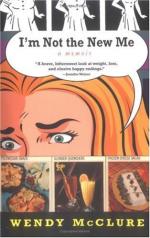Opinion battled about that poor little tale as if it had held the power to overthrow church and state and family.
It was an irreverent book—it was a devout book. It was a strong book—it was a weak book. It was a religious book—it was an immoral book (I have forgotten just why; in fact, I think I never knew). It was a good book—it was a bad book. It was calculated to comfort the comfortless—it was calculated to lead the impressionable astray. It was an accession to Christian literature—it was a disgrace to the religious antecedents of the author; and so on, and so forth.
At first, when some of these reviews fell in my way, I read them, knowing no better. But I very soon learned to let them alone. The kind notices, while they gave me a sort of courage which by temperament possibly I needed more than all young writers may, overwhelmed me, too, by a sense of my own inadequacy to be a teacher of the most solemn of truths, on any such scale as that towards which events seemed to be pointing. The unfair notices put me in a tremor of distress. The brutal ones affected me like a blow in the face from the fist of a ruffian. None of them, that I can remember, ever helped me in any sense whatsoever to do better work.
I quickly came to the conclusion that I was not adapted to reading the views of the press about my own writing. I made a vow to let them alone; and, from that day to this, I have kept it. Unless in the case of something especially brought to my attention by friends, I do not read any reviews of my books. Of course, in a general way, one knows if some important pen has shown a comprehension of what one meant to do and tried to do, or has spattered venom upon one’s poor achievement. Quite fairly, one cannot sit like the Queen in the kitchen, eating only bread and honey—and venom disagrees with me.
I sometimes think—if I may take advantage of this occasion to make the only reply in a working life of thirty years to any of the “slashers” with whose devotion I am told that I have been honored—I sometimes think, good brother critics, that I have had my share of the attentions of poisoned weapons.
But, regarding my reviewers with the great good humor of one who never reads what they say, I can afford to wish them lively luck and better game in some quivering writer who takes the big pile of what it is the fashion to call criticisms from the publisher’s table, and conscientiously reads them through. With this form of being “put to the question” I will have nothing to do. If it gives amusement to the reviewers, they are welcome to their sport. But they stab at the summer air, so far as any writer is concerned who has the pertinacity of purpose to let them alone.
Long after I had adopted the rule to read no notices of my work, I learned from George Eliot that the same had been her custom for many years, and felt reenforced in the management of my little affairs by this great example. Discussing the question once, with one of our foremost American writers, I was struck with something like holy envy in his expression. He had received rough handling from those “critics” who seem to consider authors as their natural foes, and who delight in aiming the hardest blows at the heaviest enemy. His fame is immeasurably superior to that of all his reviewers put together.




